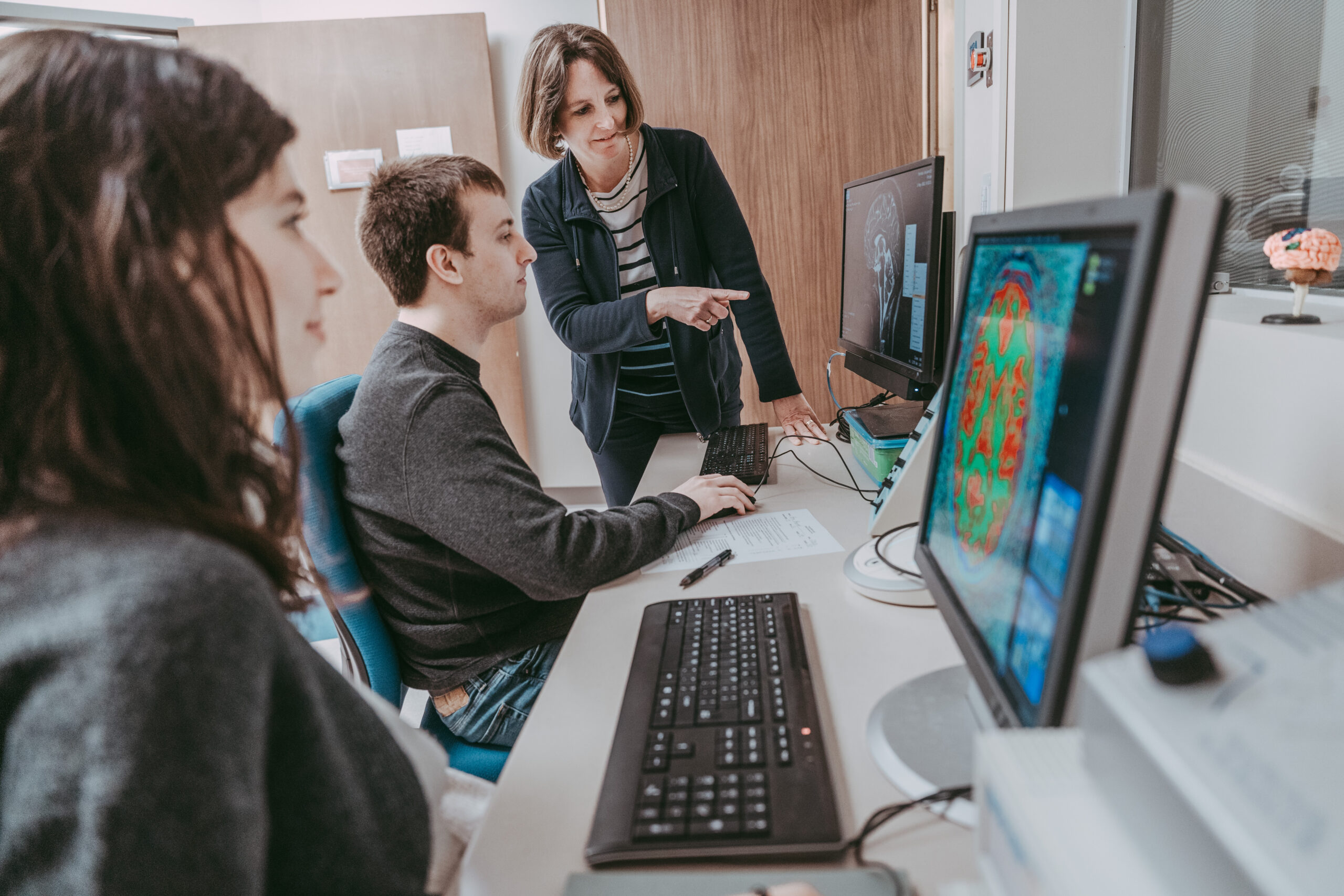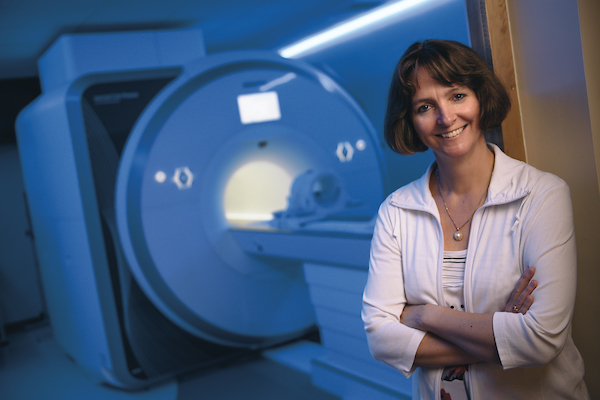With recent advances in medical imaging technology and techniques, the imaging sciences field is rapidly growing. Because the effects of these new imaging systems pose challenges with formation, acquisition and analysis of images describing processes in living tissue, imaging sciences is a necessary requirement in many jobs. In the imaging sciences graduate program, you will have the opportunity to work alongside faculty in the School of Health Sciences to develop new molecular imaging systems and techniques to advance our understanding of biological systems, applying these methods to the diagnosis and treatment of diseases.
Program Highlights
- To advance imaging sciences research, the Purdue Life Science MRI Facility is dedicated to the advancement of basic and applied life science research with an emphasis on understanding human health and disease.
- The imaging sciences field encompasses physics, engineering, chemistry, biology and medicine.
- Meet and learn from your peers by joining the Medical Physics Club of Purdue or the Purdue Association for Magnetic Resonance.
Potential Applications
- Development of 3D reconstruction methods, image processing techniques and analytical software
- Development of new imaging instrumentation and techniques
- Treatment of cancer and neurological diseases
- Early diagnosis of acute chronic diseases
Potential Careers
- Imaging Research Scientist
- Imaging Physicist
- Product Manager
- Clinical R&D Engineer
- University Professor
Concentrations
PhD Plan of StudyProgram Quick Facts
Degree Type:
Doctoral
Program Length:
Entering with BS: 4-5 years
Entering with MS: 2-3 years
Location:
West Lafayette, IN
Department/School:
School of Health Sciences
Research
As a part of the imaging sciences graduate program, you’ll have opportunities to engage in research across a variety of topics, including nutrition, environmental health, psychology, basic brain research, motor disorders, autism, cancer, neurodegenerative disorders and speech, language and auditory disorders

Research Opportunities
- MRI and MRS in diagnosis of neurotoxicity and radiation response
- Imaging and tracer development in PET and SPECT
- Dynamic contrast enhanced imaging (CT, PCT) and thermoacoustic in image-guided therapy
- Neutron and X-ray imaging in medicine and health sciences
Research Areas
Research Facilities
- Life Science MRI facility
- The Birck Nanotechnology Center
- The Bindley Bioscience Center
- The Regenstrief Center for Healthcare Engineering
- Purdue’s Center for the Environment
Faculty
- Ulrike Dydak
- Shuang Liu
- Matthew Scarpelli
- Keith Stantz
Admissions/Requirements
Applications submitted prior to January 10, 2023 will be considered for fellowships and awards.
View Admissions Criteria
Ulrike Dydak | Program Director
For questions regarding the imaging sciences graduate program, please contact our graduate coordinator, Karen Walker, at kwalker@purdue.edu.